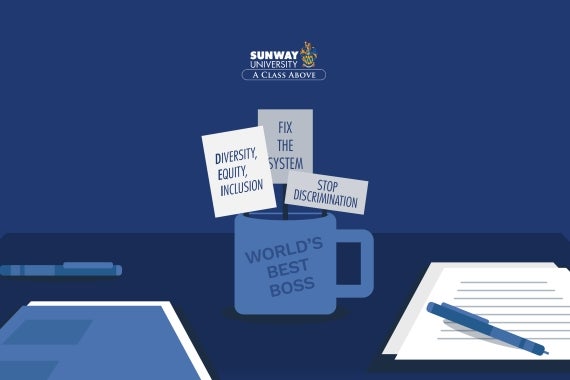How to Negotiate a Salary Offer in Malaysia: 7 Top Tips

Congratulations! You've landed a job offer after passing the interview process with flying colours. But before you accept the offer, there remains one crucial step in the hiring process: salary negotiation.
While salary negotiation can seem daunting, it is key to maximise your earning potential. A Glassdoor research found that a whopping 59% of respondents did not negotiate, accepting the salary they were first offered. This may lead to dissatisfaction further down the road. In fact, a Randstad Malaysia survey revealed that 54% of Malaysians feel that they are not drawing a salary that fairly reflects their work contributions, skill sets, and experience.
Job-seekers should keep in mind that employers expect negotiations on salary. Therefore, it is important to approach negotiations with confidence and preparedness.

Salary Negotiation: Key Takeaways
- Negotiating your salary is not only acceptable, but expected.
- Research is key. Knowing your market value and the company's budget allows for a confident and targeted negotiation.
- Communication is everything. Be clear and professional. Highlight the value you bring to the company.
Is It OK to Negotiate Your Salary After Getting a Job Offer?
Absolutely! It is perfectly acceptable to negotiate your salary after receiving a job offer. A concern that some might have is: can you lose a job offer by negotiating salary? Employers often anticipate discussions around compensation and respect candidates who advocate for their worth. As the candidate, it's essential to enter into negotiations strategically and with realistic expectations.
Top Considerations for Salary Negotiations
- Timing: Initiate the conversation after receiving the official offer, but before accepting it. Don't wait too long. Ideally, have the conversation within 24-48 hours of receiving the offer.
- Research: Understand the market average for your role, industry standards, and typical compensation packages. Use resources like Indeed job descriptions with salary ranges or sites like Glassdoor to understand the market average for your position and experience level.
- Presentation: Based on your research, come prepared with a specific salary target in mind. Aim within a reasonable range (usually 10-15% above the offered amount) to show you've done your homework and are serious about the opportunity. Articulate your value proposition clearly, highlighting what you bring to the table.
- Respect: Maintain a professional tone and be open to making realistic concessions.
Dos and Don'ts During Salary Negotiations

7 Tips When Negotiating Your Salary Offer in Malaysia
1. Do Your Market Research
Understanding the market average for your position is crucial. Resources and sites like Glassdoor, Indeed, Michael Page's Malaysia Salary Guide, job postings with salary ranges, and salary calculator platforms are powerful tools. You can use this data to support your salary expectations.
2. Ask for 30% Increase (but be flexible)
While it is common practice for Malaysian employers to base their offer on your previous salary, aiming for a 30% salary increase, particularly if you are switching companies or job titles, or have gained significant experience, demonstrates your value and sets the bar for negotiations. Be prepared to justify your request and negotiate down to a mutually agreeable figure within the market range.
3. Highlight Your Skills and Value
Focus on the unique skills and experience you bring to the table. Did you spearhead a project that resulted in significant cost savings? Do you have a proven track record of exceeding targets? Articulate how your contributions will benefit the company and justify a higher salary.
4. Discuss Verbally
Whenever possible, conduct salary discussions over the phone or in person rather than via email. This approach allows for a more nuanced conversation, immediate feedback, clarification of misunderstandings, and building rapport with the employer. This way, you can effectively address any new proposals made.
5. Be Likeable (yes, this really helps!)
Building good rapport with your potential employer can positively influence the negotiation process. Employers are more likely to agree to your terms if they view you positively. Show enthusiasm, be courteous, and express genuine interest in the company. Make a genuine connection with the hiring manager during the negotiation process.
6. Consider the Entire Compensation Package
While the amount of your take-home pay is no doubt crucial, consider the entire compensation package. Evaluate additional benefits such as bonuses, health insurance, flexible working hours, and professional development opportunities. Explore the possibility of negotiating for additional benefits that align with your needs. Sometimes, these benefits can compensate for a lower base salary.
7. Get It in Writing
Once an agreement is reached, request a formal offer letter that includes the final offer, compensation package, and any additional benefits discussed. This ensures clarity and avoids misunderstandings while protecting both you and the employer.

Closing the Deal in Salary Negotiations
Negotiating your salary is about more than just getting a bigger number on your payslip; it’s about setting the tone for a successful and rewarding career path. By following the tips above, conducting thorough research, and communicating effectively, you can secure a salary that reflects your worth and sets you on a trajectory for long-term financial security.
Remember: a successful negotiation is a win-win situation. By presenting yourself as a valuable asset and demonstrating your enthusiasm for the position, you're more likely to secure a competitive offer while fostering a positive relationship with your new employer.
So, don't be afraid to negotiate your salary. With the right preparation and a confident approach, you can land the compensation you deserve and set yourself up for a fulfilling career journey.
Need guidance on crafting your responses to employer pushback after getting a lowball offer? Here are some examples to help you reframe the conversation.
Best of luck!





